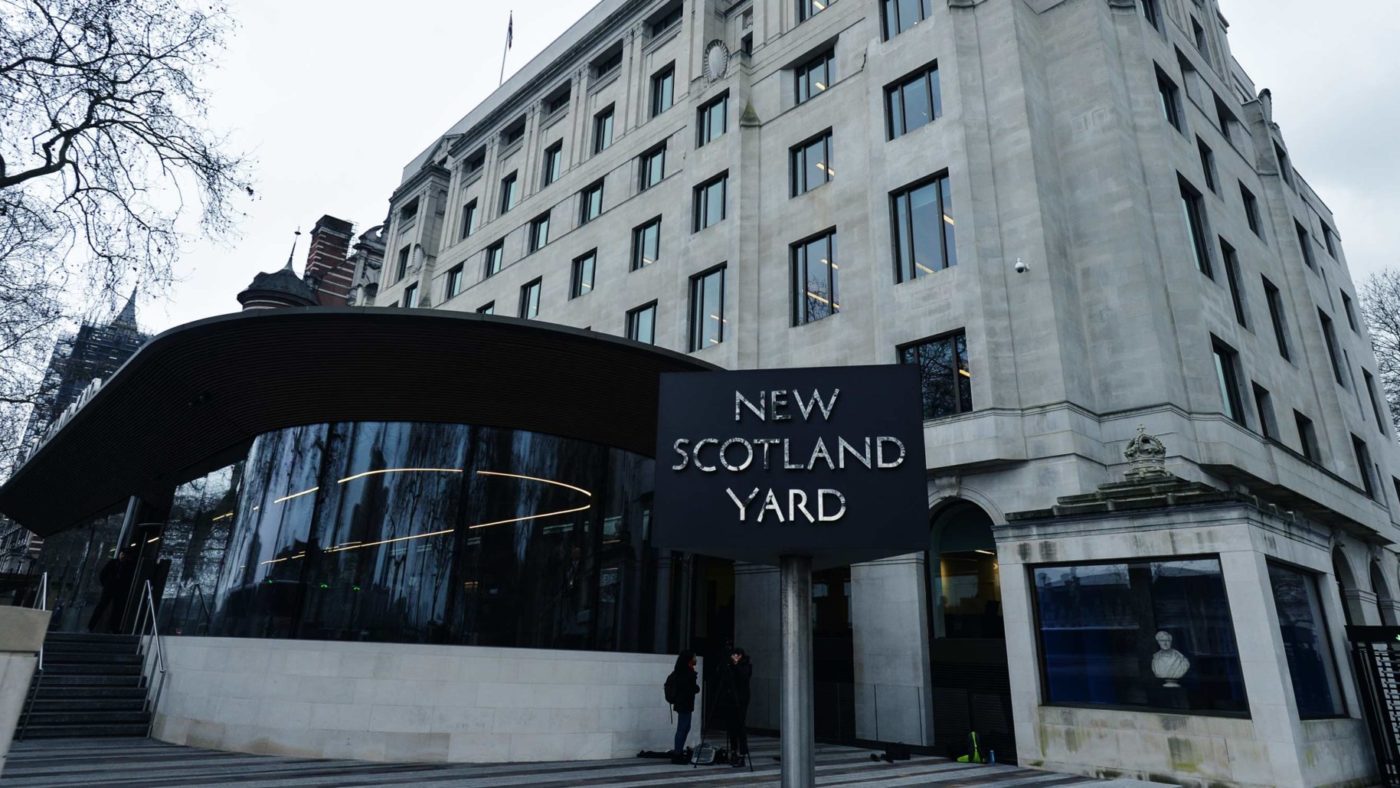We are told that the Metropolitan Police will later interview the journalist Darren Grimes, under caution, investigating an allegation that he stirred up racial hatred. The suspicion of stirring seems to be based on his complicity in coaxing some malodourous words out of Professor David Starkey’s mouth when interviewed on Grimes’ YouTube channel, Reasoned UK. Specifically, when Starkey referred to the number of ‘damn blacks’ still around to reject the idea that the transatlantic slave trade was genocide.
It’s a mark of how dumb and creepy this action is that so many prominent figures across the political spectrum have united in condemnation of what looks like an authoritarian hammer in search of an easy free speech nail. From Ash Sharkar to Nigel Farage, via a former Director of Public Prosecutions, the view is the same, whatever you think of Grimes politics or his Brexit antecedents – you can’t feel the collar of a journalist for asking questions.
But the poor, miserable plods plod on – as of writing – hamstrung by a set of principles, guidance and craven stupidity that staggers to catch up with the politicisation of offence and make sense of the prevailing delusion that ‘words are violence’. They aren’t alone in Orwell’s dock, it hasn’t escaped my attention that the Met’s carefully bland statement on the issue makes it clear that ‘guidance’ was sought from the Crown Prosecution Service before they acted. There’s plenty of room under this bus if needed later.
So how has this mad state of affairs come about? It’s easy to see the fingerprints of orthodoxy-worshipping senior police officers all over this thought-crime scene but I don’t think this fits entirely. You can hardly imagine Cressida Dick thinking, ‘I know what, let’s try to bang up a journalist for reporting hurty words, there’s not much else going on right now’.
The answer is more depressingly mundane. The ‘stirring up of hatred’ offences under the 1986 Public Order Act quite rightly criminalises the behaviour of those who deliberately set out to inflict hate crimes against people who hold protected characteristics – gender, religion, sexual orientation, disability – and race.
The police and the CPS – the authority that gives the police permission to charge – have agreed a definition that is used to interpret the law. It states, ‘Any criminal offence which is perceived by the victim or any other person, to be motivated by hostility or prejudice, based on a person’s disability or perceived race…’
Perception in this case is all. There is no filter at the front end of the process. Regardless of any objective reality, if I just think that Darren Grimes is a racist, or maybe because I don’t like his politics, or maybe because he’s gay, or maybe because he’s wearing a jumper I don’t like, that’s enough to get him over the edge of our criminal justice conveyor belt.
What happens next at the police stage is supposedly governed by some sort of proportionality. While it’s arguably right to let perception crimes through the net on the basis of encouraging those who have been abused to gain justice, the first strands ought to be sufficient to catch egregious and possibly vexatious complaints. Is merely asking a question that elicits a ‘hateful’ response as part of a journalistic endeavour ‘incitement’?
Is Grimes not immediately challenging Professor Starkey’s ‘damn blacks’ remark aggravating, or does it simply show a level of inexperience that this amateur interviewer has already acknowledged and apologised for? Does the fact that Professor Starkey has been professionally murdered and issued a fulsome apology for his ‘deplorably inflammatory remarks’ back in July, a full three weeks before a file was sent to the CPS, have no bearing on the decision-making?
It seems not. It would be interesting to access the exchange between the police and the CPS to understand the procedural and intellectual soundness of ‘guidance’ that will result in the arrest of a young journalist if he does not voluntarily present himself before the police.
I’m sure his solicitors and the Free Speech Union who represent him are preparing the Freedom of Information requests already. I think it’s inconceivable that this clown show will run for much longer, not least as the Policing College guidance on these offences states: ‘it is a defence for an individual to prove that he or she did not intend his or her words or behaviour, or written material, to stir up racial hatred’.
The Met will somehow find a form of words that manages to ride two horses going in opposite directions at once – the righteousness of the investigation, the capitulation of ‘no further action.’ Watch this space.
Mr Grimes will emerge vindicated, freshly martyred by the malign bureaucratic idiocies many of his supporters will see relentlessly ranged against him. Meanwhile, people enduring actual verbal and physical abuse in the streets and online as a daily part of their lives will receive no greater attention from the forces of law and order, eternally stuck as they are between gesture politics and overwhelming need on the front line. Free the Consett One.
Click here to subscribe to our daily briefing – the best pieces from CapX and across the web.
CapX depends on the generosity of its readers. If you value what we do, please consider making a donation.


